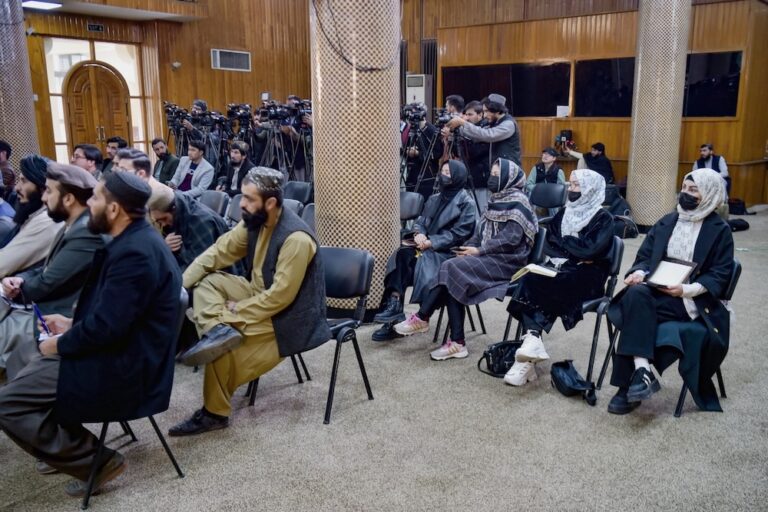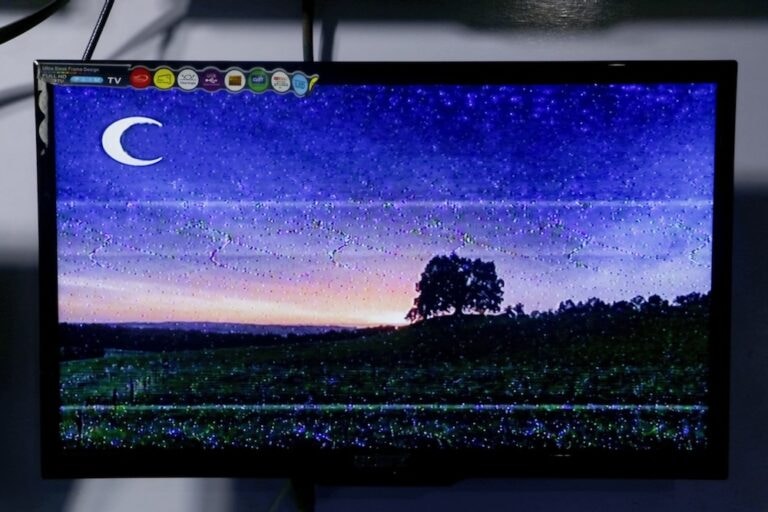ARTICLE 19/IFEX) – The following is a December 2001 ARTICLE 19 joint statement, in conjunction with Internews, Oxford University, Media Action International, Institute for War & Peace Reporting, International Media Support, Reporters sans frontières, International Federation of Journalists and Committee to Protect Journalists: A Joint Statement of Concerned International Organisations: Strategic Action Plan for Media […]
ARTICLE 19/IFEX) – The following is a December 2001 ARTICLE 19 joint statement, in conjunction with Internews, Oxford University, Media Action International, Institute for War & Peace Reporting, International Media Support, Reporters sans frontières, International Federation of Journalists and Committee to Protect Journalists:
A Joint Statement of Concerned International Organisations: Strategic Action Plan for Media in Post-war Afghanistan
December 2001
A crucial prerequisite for peace and stability, and democracy, in Afghanistan is the creation of an inclusive media environment based on respect for the international guarantee of freedom of expression. The structure of indigenous media will be a significant factor in shaping the social and political future of the country.
POLICY PRINCIPLES FOR MEDIA IN POST-WAR AFGHANISTAN
The international community should ensure that the following concerns are raised in all political and development aid negotiations.
Commitment to Respect Freedom of Expression
The Afghan authorities should make a commitment to respect and promote freedom of expression as a human right, including by:
* undertaking, as soon as possible, a review of all laws restricting freedom of expression, including general content restrictions, particularly of a criminal nature, with a view to bringing them into line with international standards;
* promoting an environment in which a strong, independent and pluralistic media sector can flourish;
* removing obstacles to free access to information, including by recognising the right of journalists to protect the confidentiality of their sources of information;
* removing any obstacles to the right of journalists to freely organise themselves into independent associations; and
* ensuring the safety and security of journalists and media staff.
Regulatory Authority
The Afghan authorities should undertake the following as soon as possible and with maximum participation of a range of local stakeholders:
* Establish an Independent Broadcasting Authority to serve as the authority for issuing broadcasting licences, enforcing compliance with licences and administering norms. The Authority must be protected against political and commercial interference through the appointment of an independent governing body with governing rules that set out clearly a fair licensing process.
* Develop a plan for the distribution of transmission licenses that assures an appropriate mix of public service and private broadcasting, including local broadcasters.
* Provide for the development, by the Authority in close consultation with broadcasters and civil society, of a self-regulatory code for the electronic media, which promotes professionalism and ensures that broadcasters refrain from inciting violence or hatred.
1. The State Broadcaster
Whatever government comes to power in Afghanistan, it is likely to establish its own broadcasting outlet. A public broadcaster of this sort has the potential to be an important institution of national unity but it could also simply serve as a mouthpiece of government. This broadcaster should be a public service broadcaster which is protected against interference from the government, including by having its editorial independence guaranteed, by being overseen by an independent governing body, by receiving sustained, politically independent financial support, and by receiving intensive management and journalistic training.
2. The Print Media
No licensing system should be imposed on the print media, although these media, like everyone else, may be subject to rules of general application, including in relation to matters such as defamation and incitement to hatred or violence. The print sector should be given an opportunity to develop a self-regulatory system.
3. Journalists’ Organisations
Journalists in Afghanistan should be free to organise themselves into professional associations. At the same time, journalists should not be required to be members of any particular association and there should be no formal conditions on who may practise journalism.
RECOMMENDATIONS FOR DIRECT SUPPORT FROM THE INTERNATIONAL COMMUNITY
We call on the international community to provide resources to assist with the following media development activities.
1. Training
There is a critical shortage of trained Afghan journalists, producers and technicians so training must be a priority for international efforts to promote media development. This need applies to all media, print, as well as both public and private broadcasters. Participants should be drawn from all of Afghanistan’s 29 provinces and a particular effort should be made to include women in training programs. Close co-ordination between NGOs is necessary to avoid duplication and to ensure that participants are committed to independent reporting.
2. Support to Independent Media
While organised ethnic factions and local power brokers are likely to attempt to exert control over certain media, there will also be legitimate independent local broadcasters and publications. Support to independent local media is critically important to the longer-term development of civil society in Afghanistan and these independent media should be the primary focus of international assistance efforts. Support should also be provided to the public broadcaster, but only if it meets certain standards of independence.
3. Funding
It is essential that a wide range of donors participate in a co-ordinated media assistance program to avoid any appearance of domination by a single outside State. It is unlikely that the Afghan economy will generate significant advertising revenue for some time, so donors should be aware of the need for sustained support over a period of time. To ensure co-ordination, the UN should convene a media donors’ meeting at the earliest possible opportunity. Levels of assistance to broadcasters or publications should be sufficient to promote varied and professional media but, at the same time, should not create a media sector that is unsustainable over the longer term. Flexibility and constructive dialogue among all local and international partners will be critical to this endeavour.
Andrew Puddephatt, Executive Director, ARTICLE 19
David Hoffman, President, Internews
Monroe Price, Director, Programme in Comparative Media Law, Oxford University
Edward Girardet, Director, Media Action International
Anthony Borden, Executive Director, Institute for War & Peace Reporting
Jesper Højberg, Executive Director, International Media Support
Robert Ménard, General Secretary, Reporters Sans Frontières
Aidan White, General Secretary, International Federation of Journalists
Ann Cooper, Executive Director, Committee to Protect Journalists


